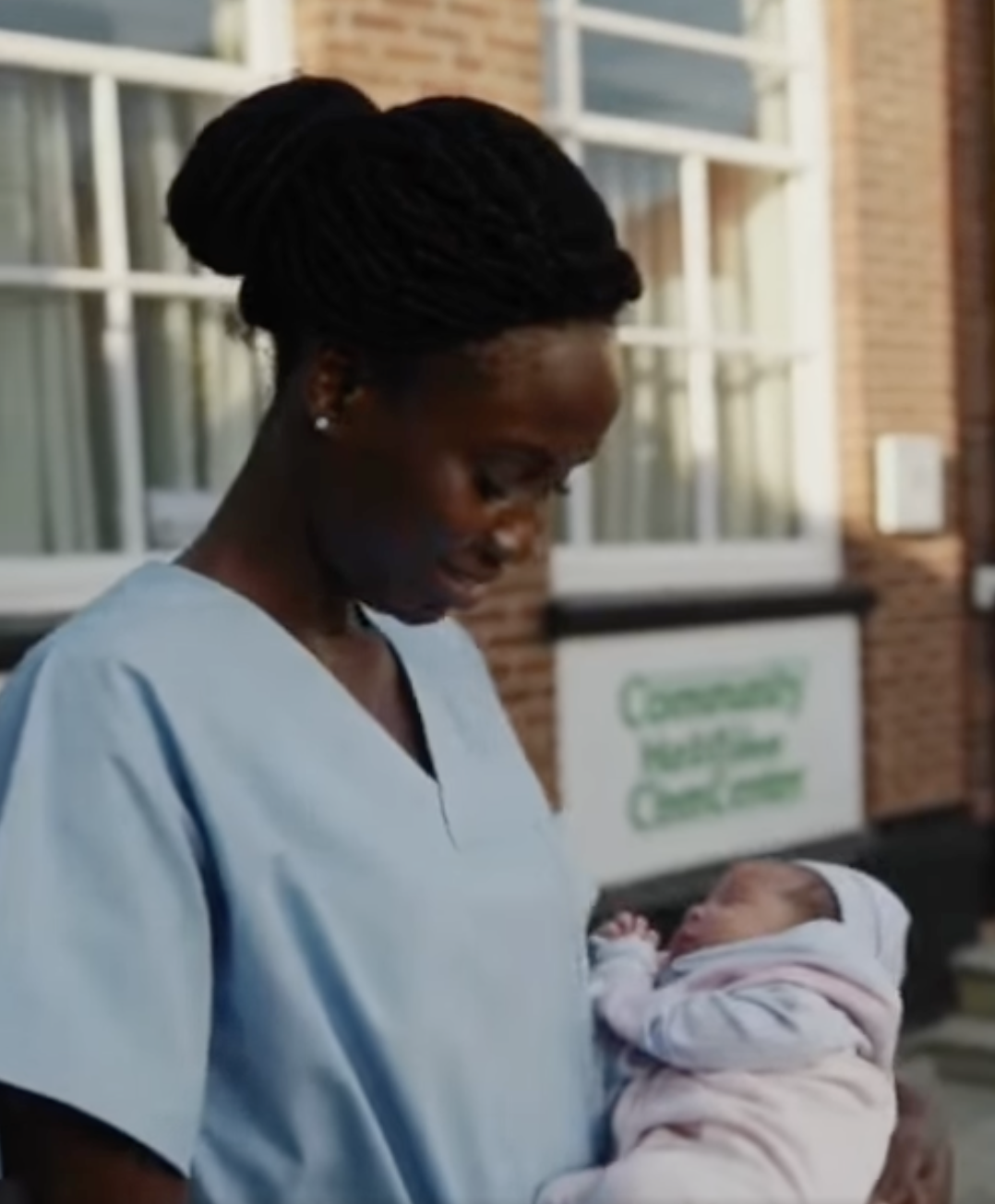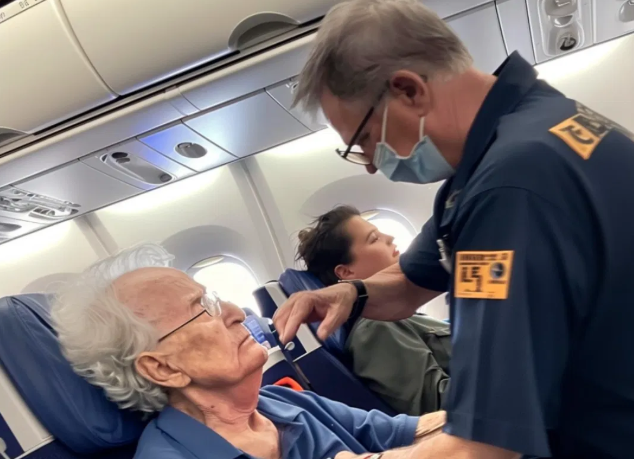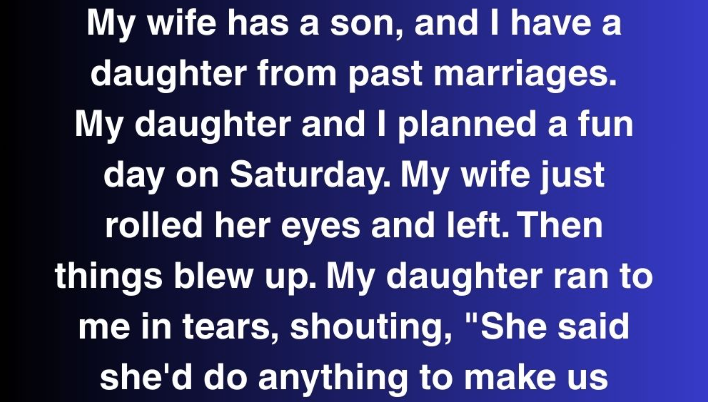I’ll never forget that night — the kind of night that settles deep into your bones. I was finishing a late shift at the small-town clinic where I work reception. Just as we were locking up, I heard the softest cry outside.
There he was.
A baby wrapped in a worn flannel jacket, lying in a bassinet just outside the entrance. No note. No identification. Just wide, curious eyes and tiny fists waving gently at the sky. We contacted the authorities immediately. They took him in and began the usual procedures. But something shifted in me that night. I couldn’t stop thinking about him.
I started visiting. Checking in. And when no one came forward to claim him after months, I began the paperwork.
I named him Rowan — after the rowan tree, long associated with protection and innocence.
Becoming a parent overnight wasn’t in the plan. But he became my plan. Every bottle, every bedtime story, every sleepy dance around the living room — we grew together. Five years passed in what felt like moments.
Rowan loved books about space and asked thoughtful, imaginative questions like, “Where do dreams go when we wake up?” Our world was filled with laughter, cardboard rocket ships, and love.
Then came one Thursday night that changed everything.
We were in the living room building a cardboard spaceship when there was a knock at the door. I answered it.
A woman stood there. Late 30s, tired eyes, clenched hands. She looked as though she hadn’t slept in days. Her voice was quiet but carried a weight I could feel.
“That child belongs to me,” she said. “You have to give him back.”
I was frozen. Rowan peeked around the corner, holding a paper star we’d just made. The woman introduced herself as Elena.
She explained that five years ago, in a time of crisis, she left her infant son at a safe location — the clinic. She had been in an unsafe relationship, without resources or support, and believed it was the only way to protect her child. She said she’d been rebuilding her life ever since — with therapy, work, and stability — and had recently begun searching for the son she left behind.
“I’m not here to take him away,” she said. “I just want to know him.”
I didn’t sleep that night. I sat by Rowan’s bed, watching him breathe, holding onto a thousand questions I couldn’t answer. The next day, I called a lawyer. Then I called Elena.
We started slow — public park meetings, short playdates. I told Rowan that Elena was a family friend. At first, he was quiet. But slowly, curiosity took hold. He loved her banana muffins and the way she listened closely to his stories about Saturn’s rings. Elena was kind, patient, and warm in a quiet way.
I began to notice things — Rowan’s nose, the shape of his smile — details that mirrored hers more than mine. One afternoon, he fell asleep in her lap. She looked at me and whispered, “You’ve done such a good job. He’s so loved.”
That broke something open in me. I didn’t cry then — but later, alone, folding his laundry, I did.
Over the next few months, Elena continued showing up. Always respectful, never pushing. She told me about her work at a local community center and the small apartment she lived in nearby. Rowan thought her cat, Pudding, was hilarious.
Then came the letter.
It was handwritten, simple and sincere. Elena said she had found peace with the past and didn’t want to disrupt Rowan’s life. But if I was willing, she wanted to be part of it — officially.
“I’m not trying to take your place,” she wrote. “I’m just hoping to find mine.”
After long talks with lawyers and a family therapist, we came up with a plan. Shared custody — no legal battle, no drama. Rowan would stay with me, but also spend time with Elena on weekends and holidays.
When the time felt right, we told him the truth — in the gentlest, most honest way we could.
“Rowan, you know how every family is a little different? Well, you’re really special. You have two moms who love you very much.”
He blinked. “Like superheroes with secret identities?” We laughed — and cried a little too.
That night, I tucked him into bed, feeling something new. Not fear, not loss — just the awareness that love had made room for more love.
But life has a way of surprising us.
Months later, I got a call from child services during a routine audit. They had discovered a detail that changed everything: a DNA mismatch. Elena’s earlier test — one she had taken years before during her search — wasn’t a match.
She wasn’t Rowan’s biological mother.
She had believed she was — based on timelines, memories, and location — but the records proved otherwise. I had to tell her.
She was devastated.
“I felt he was mine,” she whispered through tears.
And in many ways, he was. Maybe not by blood — but by connection, by devotion, by showing up.
The agency offered to restart the search for Rowan’s biological parents. But in our hearts, we already knew the truth: biology didn’t matter. Family is built through love and presence.
Elena continued to be part of his life. She still came to visit. She still braided his hair, brought banana muffins, and cheered at his school plays.
One evening, while brushing his teeth, Rowan turned to me and said, “Mama, I think Elena’s like my heart-mom. You’re my first-mom, but she’s my heart one.”
In that moment, I knew we were doing something right.
Three more years have passed.
Rowan is eight now. He still builds cardboard spaceships and reads books about dinosaurs. Elena and I have become true friends. She recently got engaged to a kind man named Arun. Rowan calls him “A-bro,” and we’ve all learned not to question it.
We may never know who Rowan’s biological parents are. But we do know this: family isn’t always about where you come from — it’s about who chooses you.
Sometimes, it begins with a flannel blanket on a cold night. Sometimes with muffins in a park. And sometimes, the greatest kind of love is the one that grows without a map.
Rowan has two moms. Not by chance, and not by obligation. By choice. By heart.
If this story resonated with you, share it with someone who believes in second chances, blended families, or the unexpected beauty of love. Because sometimes, life’s most extraordinary stories begin with a quiet knock on the door.




